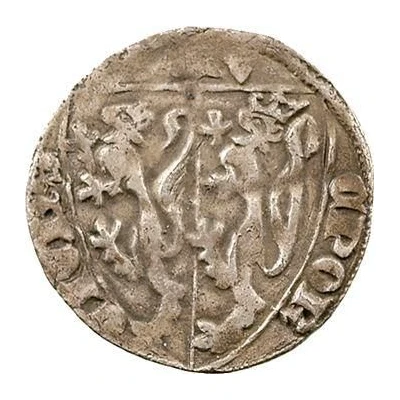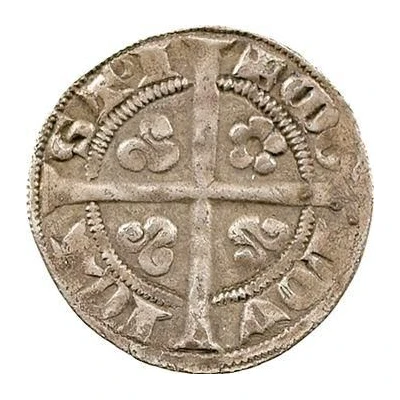


© iNumis
Esterlin - Gaucher V de Châtillon usufruitier ND
| Silver | 0.98 g | 17 mm |
| Issuer | Lordship of Neufchateau (French States) |
|---|---|
| Lord | Gaucher V de Châtillon (1318-1322) |
| Type | Standard circulation coin |
| Years | 1318-1322 |
| Value | 1 Sterling (1⁄80) |
| Currency | Denier |
| Composition | Silver |
| Weight | 0.98 g |
| Diameter | 17 mm |
| Shape | Round (irregular) |
| Technique | Hammered |
| Orientation | Variable alignment ↺ |
| Demonetized | Yes |
| Updated | 2024-10-04 |
| Numista | N#381576 |
|---|---|
| Rarity index | 100% |
Reverse
Long cross intersecting the legend, flanked by trefoils on 1, 3 and 4 and a rosette on 2.
Script: Latin (uncial)
Lettering: ✠ mO NOVI CAST’I
Lettering (regular font): ✠ MO NOVI CAST’I
Comment
Gaucher de Châtillon, Constable of France and Count of Porcien, minted coins in the seigneuries of Florennes and Neufchâteau as husband of Isabelle de Rumigny, widow of Thibaud II of Lorraine, whom he had married in 1313 and who died in 1322. In Neufchâteau, minting was regulated by the convention of 1318, which stipulated that the Constable could mint on condition that he imitated the type and foot of the ducal coins of Lorraine and shared the profits of the workshop with the Duke.Interesting fact
One interesting fact about this coin is that it was minted during a time of great economic and political change in Europe. The Lordship of Neufchateau, where the coin was minted, was a small territory in the French States that was known for its agricultural wealth and strategic location along trade routes. The coin's minting during the reign of Gaucher V de Châtillon (usufruitier) suggests that it may have been used as a means of facilitating trade and commerce within the region. Additionally, the use of silver in the coin's minting indicates that it may have been a valuable and sought-after currency during this time period.